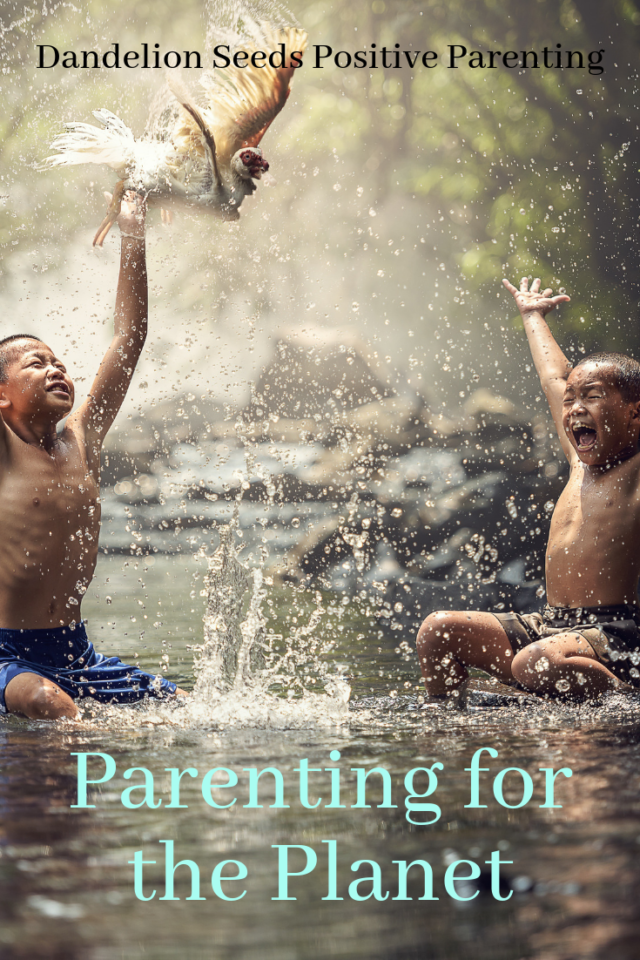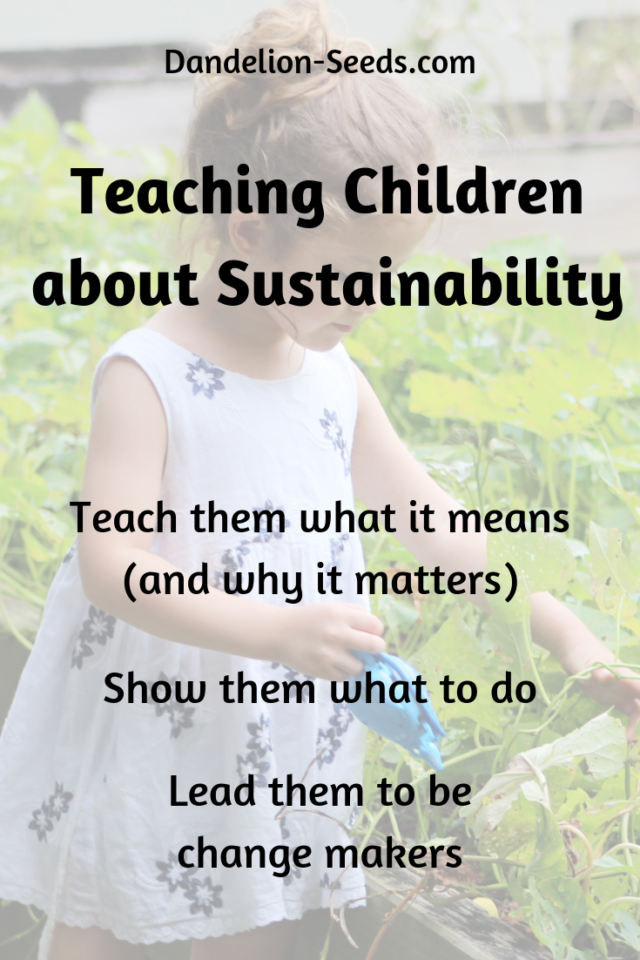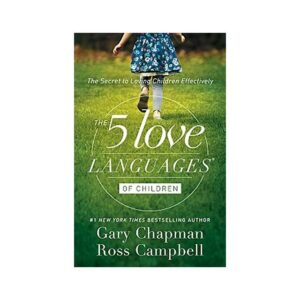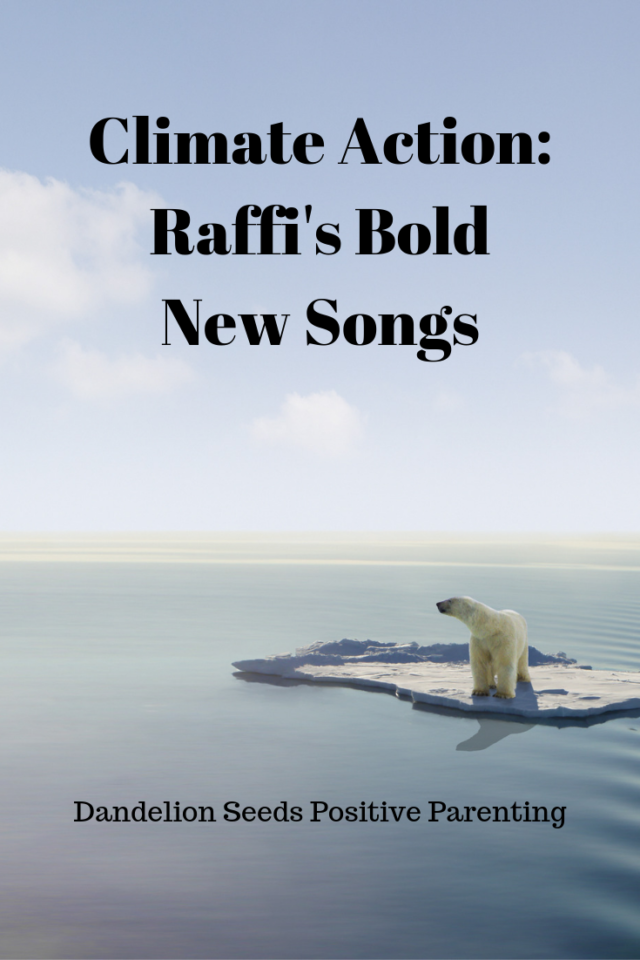
Sign in
Don't have an account with us? Sign up using the form below and get some free bonuses!

Teaching children how to protect the Earth often isn't at the forefront of our minds. We recycle, of course, and we're generally good citizens. In all practicality, however, we're often busy...making lunch. Managing our children's bedtimes. Living life.
I don't write that judgmentally. I'm guilty of it, too.
As part of conscious parenting, however, it's imperative that we do teach kids why we need to protect the Earth. Conscious parenting and salvaging what we can of the planet aren't mutually exclusive. We have a moral obligation to not only teach children how to be kind to other humans, but also to show them how to nurture the global home they share.

We shouldn't just teach kids about the implications of deforestation or melting ice caps, of course ---rather, they need to know about all the myriad factors that play into the future of this "pale blue dot" we call home.
However, it feels a bit overwhelming to have that responsibility on our shoulders, doesn't it?
It is overwhelming to protect the Earth, much less teach little kids about it. I'm not minimizing the enormity of the task. Fortunately, as individuals, we're not supposed to carry heavy burdens alone---especially seemingly insurmountable ones like climate change. Positively altering our world is going to take work from every single one of us as a global community. What matters is that we're doing our part.
There's always something we can do to protect the Earth. Here are three ways that work well as we parent our children: Teach Them, Show Them, and Lead Them.

In addition to modeling for your kids all the ways you protect the Earth, challenge them to find ways to be change makers themselves. See what they come up with. Here are a few examples:

birthday streamers or decorations, wrapping paper or ribbons, take a single "day in the life" and see what you can reuse again another day. I never realized that I'd inherit my great grandmother's habit of saying, "Don't tear the wrapping paper---we'll use it again next year!"---but here I am. (I plan to phase out wrapping paper entirely once what we've been reusing no longer holds together.) Encourage your children to challenge their friends to nix single use items in their homes, too. Frame it as an ongoing scavenger hunt. Every day holds opportunities to rethink that which we used to consider disposable.

Solar panels and electric cars aren't feasible for everyone, and we can't always choose whether our homes are powered by wind turbines. However, until more of those things are commonplace, you can write letters with your children. Make phone calls. Model to your children that communication matters---because their future on this planet matters.
There are so many ways to weave this topic into your daily conversations. Although it's wonderful to have sit-down discussions about how to protect the Earth, it doesn't need to be complicated or heavy-handed, particularly with children who are highly sensitive. Adapt your message to suit your child's ability to process the information thoughtfully and without fear mongering. Starting small is great, particularly for small children. No child is too young to listen. It's all about planting the proverbial seed. It will grow if you let it.
Awareness and understanding go a long way; they're how kids establish their belief systems about what's important.
Here are some simple and effective ways you can teach young children about how to protect the Earth:
What you can say to your child: "I'm turning off the bedroom lights because no one's in there. That's how we save energy. Saving energy helps protect the Earth and everyone who lives on it."
 items to break down. A single plastic bag can take anywhere from 10-1000 years; some studies argue that they never fully decompose. What else can you research together?
items to break down. A single plastic bag can take anywhere from 10-1000 years; some studies argue that they never fully decompose. What else can you research together?What you can say to your child: "We're walking to the library today so we don't use the fuel that's in our car. Saving fuel helps protect the Earth by reducing fumes and protecting the planet's natural resources."
Talking goes a long way for kids. If they don't hear important messages from you, what would they know to look for (or to avoid) in society as they grow up?
It's important for kids to know that they're not too young to care; not too young to help.
Have you heard of Greta Thunberg, a 17-year-old girl from Sweden? She's a climate activist who's inspired marches for young people around the world. She completed an incredible 15-day, 3,000-mile (4,800km) voyage on a carbon-neutral boat across the Atlantic to bring awareness to climate change. She spoke at the United Nations Climate Summit in September 2019. Here's her very compelling speech to the Assemblée Nationale:
Greta's work is inspiring and wonderful, yet she's not the only one who's doing good work to protect the Earth. Young activists are doing important climate work all over the world. Share their stories with your children.
Watch your children's reactions to others' work to learn which elements of protecting our planet speak to their hearts. Then, foster those things. Do they love marine animals? What about their favorite forest creatures? Do your kids enjoy hiking, playing outside in good weather, or boating with Grandpa? See what other people are doing to make enjoying those things possible for your child. Tie those things into your discussions. They're specific. They're memorable.
As with all topics, you'll be more likely to succeed at teaching your message about sustainability if your child feels emotionally compelled to learn. Just like some kids enjoy math for the sake of numbers and others don't care about math until they discover physics, pay attention to what resonates with your child. Show them what others are doing in an area that inspires them. Read books together about ways your children can help protect the Earth (afflinks). Check them out from your local library if you can.
Be it a cigarette butt on the pavement, smoke spewing from a manufacturing facility, or someone acting irresponsibly towards our planet in any way, it's perfectly okay to point it out and say, "Yuck." Explain why it's off-putting.
What you can say to your child: "I don't like it when people leave their trash near the lake. It's dirty and can make the fish and animals here very sick. I want people to do better." Bonus points: pick up the trash and take it to the nearest bin. Pack an eco-friendly hand sanitizer to keep with you if you're concerned about cleanliness.
Kids need to know that adults outside your home care about sustainability, too---lest they feel as overwhelmed as we do. It's hard to feel like an activist in isolation. Show them they're not alone. Find role models they admire (famous or not) and share with them what those people are doing.
Raffi, the beloved children's troubadour and creator of his namesake Foundation for Child Honouring, wrote two wonderful new songs about the climate emergency ("Young People Marching – for Greta Thunberg" and "Do We Love Enough"). Here's his press release. You can stream the songs from here.
I'd love to say "Show kids that we've got this." Although I can't do that, I'll write, "Show them that we're working on it."
The normal order of things is for them to outlive us on a safe and healthy planet.
We can't force kids to be stewards of the Earth; it's our job as conscious parents to model these things for them. They'll follow our lead. As a bonus, the more you instill your messages in your kids, the more they'll hold you accountable, too. Your actions will become their actions as they grow up. They're paying attention now.
"Another day is imminent. Another world is possible." -- Raffi Cavoukian
Sarah R. Moore is an internationally published writer and the founder of Dandelion Seeds Positive Parenting. You can follow her on Facebook, Pinterest, and Instagram. She’s currently worldschooling her family. Her glass is half full.
Bribing children to improve their behavior or motivate them -- it's common, but should we be doing it? I was raised in the era of "good jobs" and gold stars; sticker charts and color-coded behavior cards. Many of us grew up with conditional rewards like, "If I do x, then I'll get y." Therefore, they became our defaults as we parent our own children.
There are three main problems with bribing children:
Here's more detail about each of these drawbacks.

Interestingly, researchers now have information that shows us that these types of rewards (and their related punishments) aren't the best way to motivate children. In fact, they can even be detrimental to their development. In short, while they might work to varying degrees, they deny children the opportunity to develop their natural and intrinsic motivation to succeed. Alfie Kohn wrote an entire research-based book about this called Punished by Rewards (afflinks).
Likewise, punishments teach children to avoid engaging in certain behaviors that we, the adults, find less than ideal. While that might sound like a good thing, there's a catch. We want kids to make good choices because they're driven to make good choices, and not because they're afraid of us. That's not connection-based parenting.
Experts do know, however, the many benefits of respectful, authoritative parenting. Part of that philosophy includes separating ourselves from conditional parenting, which can have the unintended effect of our kids thinking we approve of (and love) them only when they behave in certain ways. Of course, that's not what we want them to believe when we DO love them unconditionally.
Related to Bribing Children, a Mini-Course: What to Do When Your Child Won't Comply No Matter How Many Times You've Asked
Sure, we all like the proverbial carrot from time to time. I'll agree that it's not entirely black and white. Even I enjoy going out for a gelato or taking a long walk in a beautiful area if I've had a particularly rough week and want to somehow mark my survival. I do the same for my child. Her "reward" might be a special trip to a playground, a museum, or whatever feels right in the moment.
With this mindset, I don't think rewards are all bad as long as they're not performance-based. They're just part of day-to-day happy celebrations (and I'm far more likely to use that nomenclature for them). That's very different from bribing children.

A problem with bribing children to influence their behavior, however, is that children come to expect the bribes (they should --- we're wiring them for it!), and we lose sight of the goal we wanted in the first place: intrinsic motivation. So, I don't advocate bribing children and tying rewards to a child's specific behaviors, just like I wouldn't want to withhold a beautiful walk (or gelato!) from myself just because I didn't meet a deadline I'd worked hard to meet.
Good things are enough without having to be tied to behavior; that's part of what makes them good.
If your child has come to expect the rewards, it's best not to go cold turkey and stop offering them entirely. That would likely feel to them like punishment. And we absolutely shouldn't make our children suffer while we revise our parenting approaches, even if they're for the better. Particularly if your children are young and "wired" from past experience for the sticker or whatever it is, trust your judgment in giving / not giving it to them.
It's important to tune into your child and gauge your response on how connected they're feeling and whether they're actively seeking out the reward, or proceeding happily with their day without the "carrot." In this situation, I'd recommend a form of gentle weaning from rewards, if you will.
If you've been bribing children (example: a sticker for every good behavior, discussed with an expert here), switch to an end-of-day reward, and eventually to a weekly "thank you" of some sort. Proceed onto intangible rewards, such as a special trip to the movies. You can still tie the event to whatever behavior the reward was attached previously.

From there, you can scale back to verbal appreciation --- which frankly, is a wonderful way to communicate gratitude. For some children, "words of affirmation" are exactly the love language they need to feel motivated in the first place.
If you know the five love languages and are wondering where "gifts" play in, they still can. The trick is to offer gifts for the sake of gifts; not as a result of so-called good behavior.
There are many ways to express gratitude. However, particularly for young children who live their entire lives "in the moment," a genuine smile and sincere word of thanks are a lot more meaningful than a promise of a reward (which they might forget to associate with the behavior you sought in the first place).
Or worse, you might find yourself in an otherwise avoidable tantrum situation for not providing the reward fast enough---and then all your work will have gone out the window.
Expressing sincere gratitude fosters connection-based relationships with our children.
Rather than bribing children with tangible items, these words work well for all ages. Remember to praise effort rather than result (it's better for their long-term self worth) and include specifics in your description.
We don't want to overcompensate with too many verbal affirmations, though, or like all things, they'll lose their value. Offer praise and gratitude for the things that matter. (By golly, please don't praise a child for "good hopping" or "good playing," because those are just what kids do naturally.) Lest we overthink it, we can relax. Express gratitude to kids like you would to anyone else.
Be genuine about it and just make sure to do it when it's right---you know, perhaps when bribing children might've been there previously.
Is it really that easy? Just express gratitude?
Yes. It is.
It can take time to change (perhaps with some growing pains) if you've been doing something else, but it really can be this easy.
This short video covers the details of how to successfully help kids learn to use the potty without bribes or rewards. Suffice it to say for now that bribing children isn't necessary even for things like that. No child needs a sticker / a chocolate / a toy or special privilege to do that which the body does naturally.
There are situations where it's fine to reward kids in traditional ways. If I can return to my gelato analogy from above, it's healthier if I don't eat it (or, in this case, use rewards as incentives). It's fine if I do eat gelato sometimes --- I just don't rely on it as a staple of my diet. And if I can choose a better option every time, terrific.
I will add, however, that it's absolutely possible to raise happy, healthy, well adjusted people without bribing children. I've done it and am still doing it. I never started parenting with rewards so staying the course now comes naturally.
We all work for paychecks (except those of us who work for the sake of love or passion, right)? True. However, I don't know a single person who doesn't want to enjoy their work; to feel intrinsically motivated to do it.
That brings me back to those of us who are working for love or passion. We do things because they bring us joy; because we want to (even on the hard days). That's exactly what we're trying to instill in our children, starting here.
Have you ever tried to change the world---really put your heart into it and stayed the course because it simply became part of you? Most of us haven't. Raffi, however, has done exactly that. Once called “the most popular children’s singer in the English-speaking world” (Washington Post) and “Canada’s all-time children’s champion” (Toronto Star), Raffi has been lighting up children's faces with smiles for four decades. His work on behalf of children is also longstanding. Raffi sings to help change the world for the better, and his two new climate songs do exactly that. These songs are exactly what the world needs to hear right now.

Raffi's not the only one working for climate action, of course. A notable young change maker is
Greta Thunberg, a Swedish teen climate activist who has inspired marches by young people
around the world. She just completed an incredible 15-day, 3,000-mile (4,800km) voyage on a
carbon-neutral sailboat across the Atlantic, where she attended the recent United Nations climate summit.
One of his new songs, "Young People Marching," doesn't mince words. It embodies the very spirit that Greta conveys when she so eloquently speaks to world leaders and influencers; the leaders of today and the leaders yet to come.
Similarly, Raffi's other new song, "Do We Love Enough," is thought provoking and compelling. It drives us to want to do more for those who aspire to continue living safely on this planet. It asks the questions that we need to be asking ourselves. What are our own answers?
Even as far back as 2007, he released a catchy song called "Cool It." More recently, in a 2017 essay for NBC news, Raffi wrote, “Kids born today will face unprecedented global crises within their lifetimes, including the possible collapse of fisheries, accelerated mass extinctions, decimation of coral reefs and rising sea levels… Finding a remedy for our species is a matter of survival.” His consistent advocacy for children and for the Earth are inexorably interrelated. He's shared his own response to the climate emergency here. You can also read his press release on the same topic.
Now, with new songs for Greta and for the rest of us, what Raffi’s conveying is clear. Just as we share this planet, we also share the responsibility of taking care of it. Raffi's music compels us to listen; it compels us to change for the better.
We must respond to the climate emergency in thought, word, and deed. Our world needs emergency responders.
This article describes how we can help children learn how to protect the Earth by talking to them about it, showing them ways others are doing it (like Greta and Raffi are here), and by empowering them to be change makers in the climate emergency.